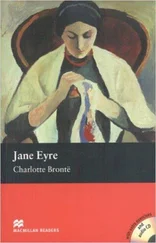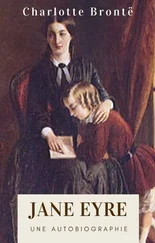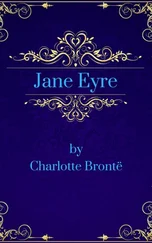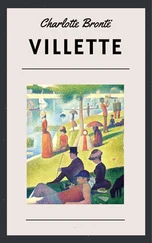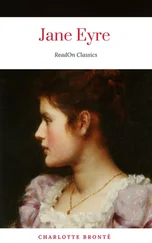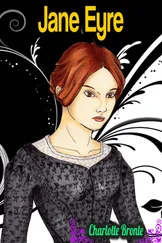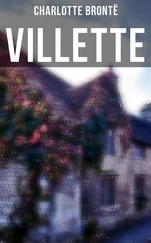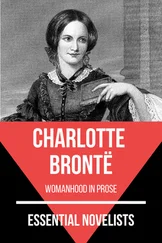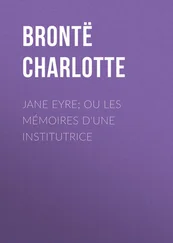Adèle seemed scarcely to need the warning — she had already retired to a sofa with her treasure, and was busy untying the cord which secured the lid. Having removed this impediment, and lifted certain silvery envelopes of tissue paper, she merely exclaimed —
“Oh ciel! Que c’est beau!” and then remained absorbed in ecstatic contemplation.
“Is Miss Eyre there?” now demanded the master, half rising from his seat to look round to the door, near which I still stood.
“Ah! well, come forward; be seated here.” He drew a chair near his own. “I am not fond of the prattle of children,” he continued; “for, old bachelor as I am, I have no pleasant associations connected with their lisp. It would be intolerable to me to pass a whole evening tête-à-tête with a brat. Don’t draw that chair farther off, Miss Eyre; sit down exactly where I placed it — if you please, that is. Confound these civilities! I continually forget them. Nor do I particularly affect simple-minded old ladies. By-the-bye, I must have mine in mind; it won’t do to neglect her; she is a Fairfax, or wed to one; and blood is said to be thicker than water.”
He rang, and despatched an invitation to Mrs. Fairfax, who soon arrived, knitting-basket in hand.
“Good evening, madam; I sent to you for a charitable purpose. I have forbidden Adèle to talk to me about her presents, and she is bursting with repletion: have the goodness to serve her as auditress and interlocutrice; it will be one of the most benevolent acts you ever performed.”
Adèle, indeed, no sooner saw Mrs. Fairfax, than she summoned her to her sofa, and there quickly filled her lap with the porcelain, the ivory, the waxen contents of her “boite;” pouring out, meantime, explanations and raptures in such broken English as she was mistress of.
“Now I have performed the part of a good host,” pursued Mr. Rochester, “put my guests into the way of amusing each other, I ought to be at liberty to attend to my own pleasure. Miss Eyre, draw your chair still a little farther forward: you are yet too far back; I cannot see you without disturbing my position in this comfortable chair, which I have no mind to do.”
I did as I was bid, though I would much rather have remained somewhat in the shade; but Mr. Rochester had such a direct way of giving orders, it seemed a matter of course to obey him promptly.
We were, as I have said, in the dining-room: the lustre, which had been lit for dinner, filled the room with a festal breadth of light; the large fire was all red and clear; the purple curtains hung rich and ample before the lofty window and loftier arch; everything was still, save the subdued chat of Adèle (she dared not speak loud), and, filling up each pause, the beating of winter rain against the panes.
Mr. Rochester, as he sat in his damask-covered chair, looked different to what I had seen him look before; not quite so stern — much less gloomy. There was a smile on his lips, and his eyes sparkled, whether with wine or not, I am not sure; but I think it very probable. He was, in short, in his after-dinner mood; more expanded and genial, and also more self-indulgent than the frigid and rigid temper of the morning; still he looked preciously grim, cushioning his massive head against the swelling back of his chair, and receiving the light of the fire on his granite-hewn features, and in his great, dark eyes; for he had great, dark eyes, and very fine eyes, too — not without a certain change in their depths sometimes, which, if it was not softness, reminded you, at least, of that feeling.
He had been looking two minutes at the fire, and I had been looking the same length of time at him, when, turning suddenly, he caught my gaze fastened on his physiognomy.
“You examine me, Miss Eyre,” said he: “do you think me handsome?”
I should, if I had deliberated, have replied to this question by something conventionally vague and polite; but the answer somehow slipped from my tongue before I was aware — “No, sir.”
“Ah! By my word! there is something singular about you,” said he: “you have the air of a little nonnette; quaint, quiet, grave, and simple, as you sit with your hands before you, and your eyes generally bent on the carpet (except, by-the-bye, when they are directed piercingly to my face; as just now, for instance); and when one asks you a question, or makes a remark to which you are obliged to reply, you rap out a round rejoinder, which, if not blunt, is at least brusque. What do you mean by it?”
“Sir, I was too plain; I beg your pardon. I ought to have replied that it was not easy to give an impromptu answer to a question about appearances; that tastes mostly differ; and that beauty is of little consequence, or something of that sort.”
“You ought to have replied no such thing. Beauty of little consequence, indeed! And so, under pretence of softening the previous outrage, of stroking and soothing me into placidity, you stick a sly penknife under my ear! Go on: what fault do you find with me, pray? I suppose I have all my limbs and all my features like any other man?”
“Mr. Rochester, allow me to disown my first answer: I intended no pointed repartee: it was only a blunder.”
“Just so: I think so: and you shall be answerable for it. Criticise me: does my forehead not please you?”
He lifted up the sable waves of hair which lay horizontally over his brow, and showed a solid enough mass of intellectual organs, but an abrupt deficiency where the suave sign of benevolence should have risen.
“Now, ma’am, am I a fool?”
“Far from it, sir. You would, perhaps, think me rude if I inquired in return whether you are a philanthropist?”
“There again! Another stick of the penknife, when she pretended to pat my head: and that is because I said I did not like the society of children and old women (low be it spoken!). No, young lady, I am not a general philanthropist; but I bear a conscience;” and he pointed to the prominences which are said to indicate that faculty, and which, fortunately for him, were sufficiently conspicuous; giving, indeed, a marked breadth to the upper part of his head: “and, besides, I once had a kind of rude tenderness of heart. When I was as old as you, I was a feeling fellow enough, partial to the unfledged, unfostered, and unlucky; but Fortune has knocked me about since: she has even kneaded me with her knuckles, and now I flatter myself I am hard and tough as an India-rubber ball; pervious, though, through a chink or two still, and with one sentient point in the middle of the lump. Yes: does that leave hope for me?”
“Hope of what, sir?”
“Of my final re-transformation from India-rubber back to flesh?”
“Decidedly he has had too much wine,” I thought; and I did not know what answer to make to his queer question: how could I tell whether he was capable of being re-transformed?
“You looked very much puzzled, Miss Eyre; and though you are not pretty any more than I am handsome, yet a puzzled air becomes you; besides, it is convenient, for it keeps those searching eyes of yours away from my physiognomy, and busies them with the worsted flowers of the rug; so puzzle on. Young lady, I am disposed to be gregarious and communicative tonight.”
With this announcement he rose from his chair, and stood, leaning his arm on the marble mantelpiece: in that attitude his shape was seen plainly as well as his face; his unusual breadth of chest, disproportionate almost to his length of limb. I am sure most people would have thought him an ugly man; yet there was so much unconscious pride in his port; so much ease in his demeanour; such a look of complete indifference to his own external appearance; so haughty a reliance on the power of other qualities, intrinsic or adventitious, to atone for the lack of mere personal attractiveness, that, in looking at him, one inevitably shared the indifference, and, even in a blind, imperfect sense, put faith in the confidence.
Читать дальше

